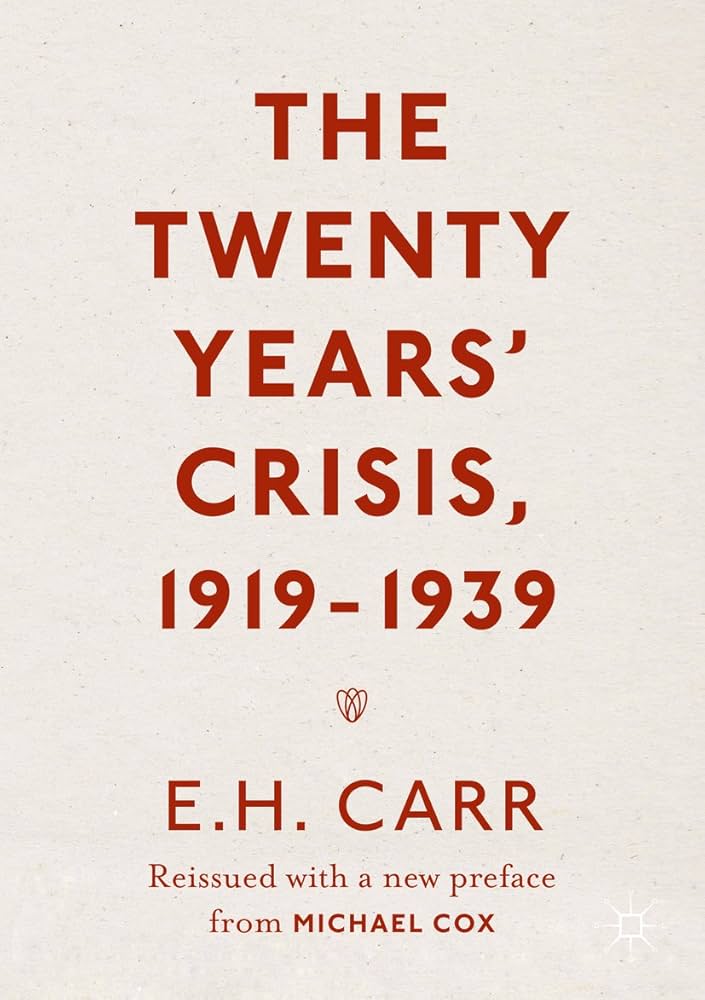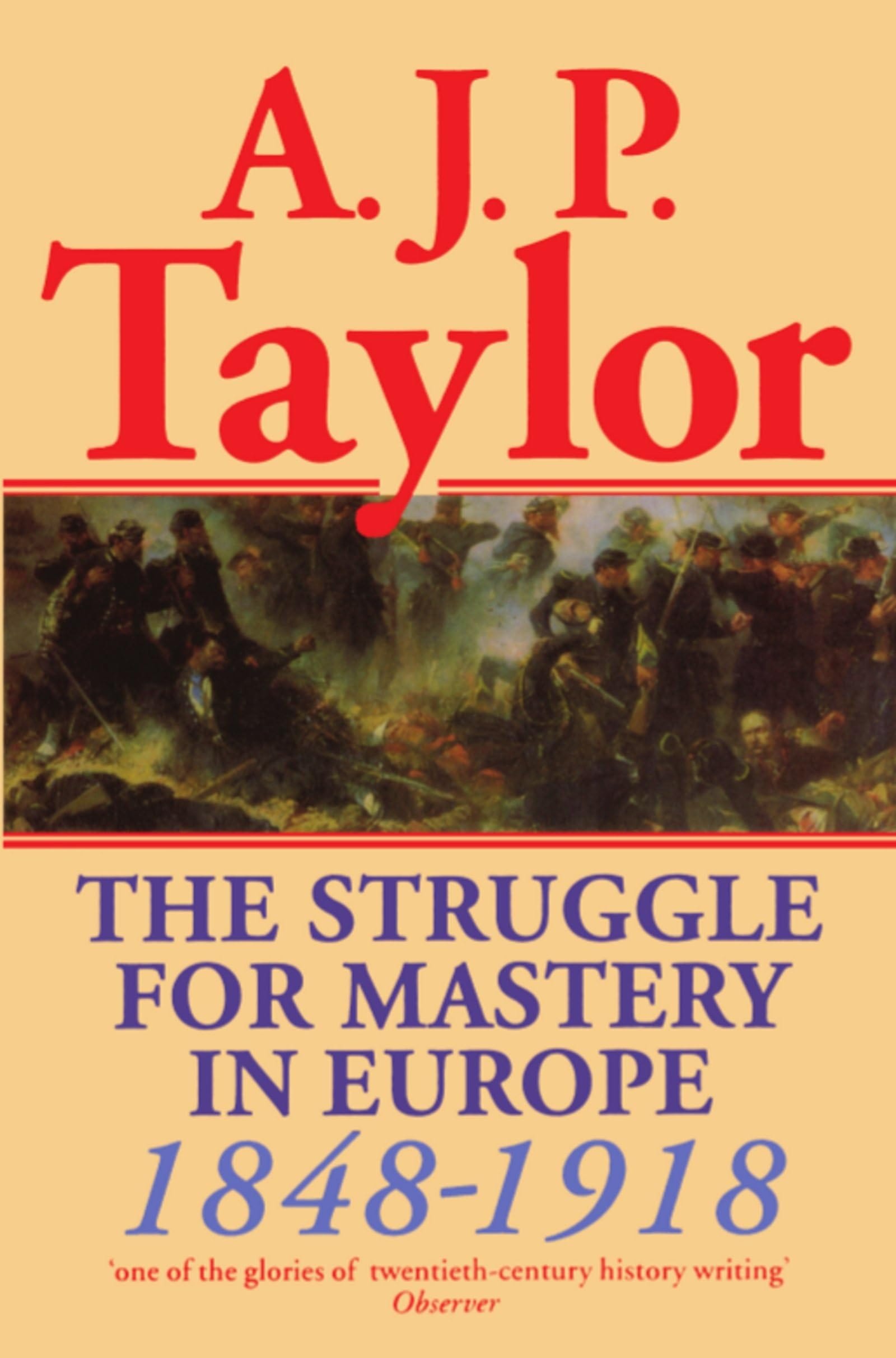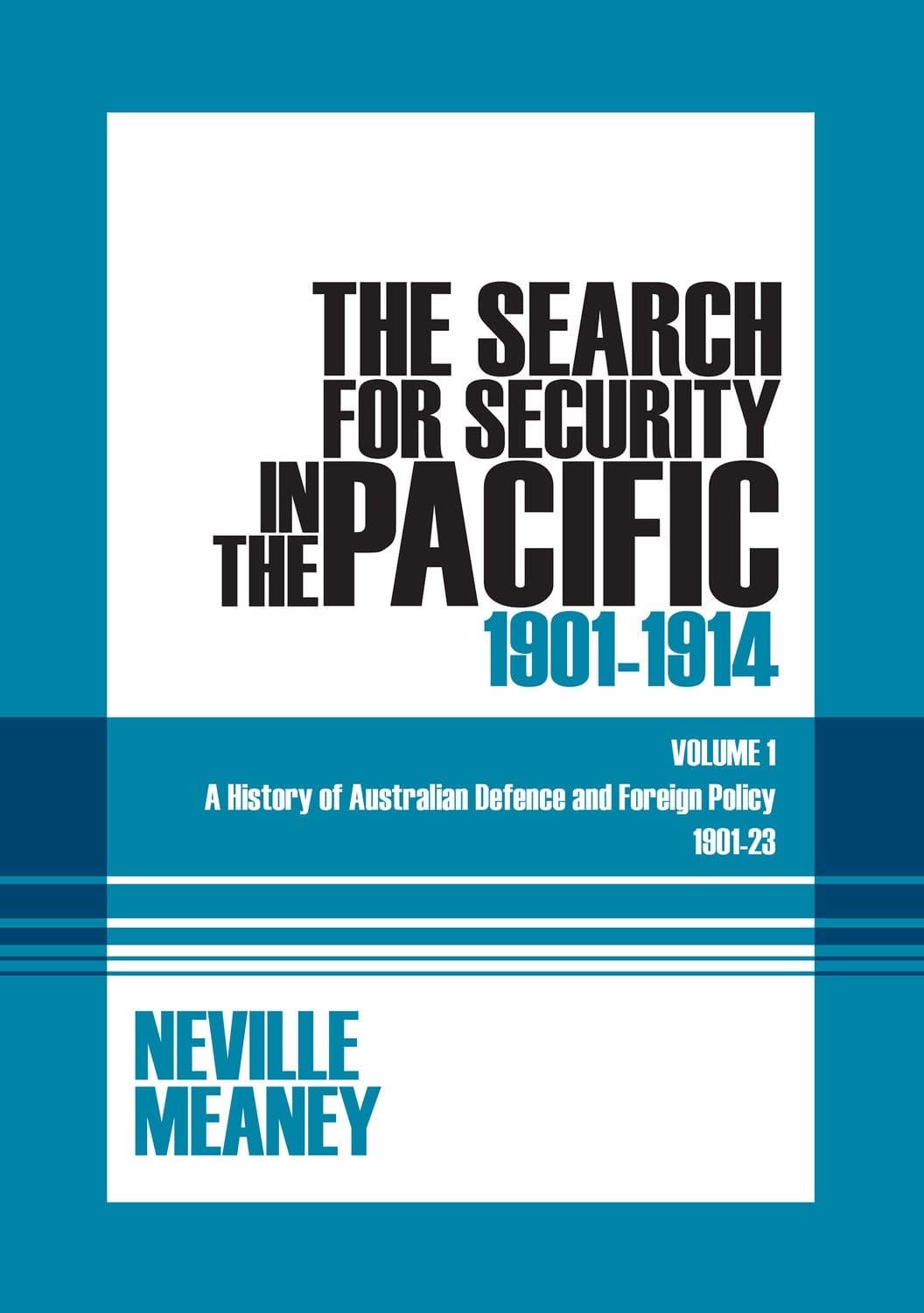Hugh White’s Strategy Reading List (with Annotations)

Hugh White, May 2008
Strategy and International Relations
Peter Paret (ed.) – Makers of Modern Strategy
A big anthology of strategic thought starting with Machiavelli – not at all a bad place to start. Gives you all you need on Clausewitz et al, at least to start.
Michael Howard – War and the Liberal Conscience
A. J. P. Taylor – The Troublemakers
Two top little books on the political and ethical place of war in modern political thought. Both a delight to read, and a reminder of how long we have been hoping that war between states has become a thing of the past.

E. H. Carr – The Twenty Years’ Crisis
The foundational book in modern IR, written in 1938/9, which sets out on the basis of the interwar years to explore the relationship between power and institutions in international order.
Hedley Bull – The Anarchical Society
A wonderfully clear eyed, almost philosophical, examination [HB was a B. Phil, you know] of the nature of order in the international system.
Herbert Butterfield (ed.) – Diplomatic Investigations
A volume of essays by English guys in 1950s including HB and his mentor and teacher Martin Wight on the working of the international system which sets Carr and co in context.
Alastair Buchan – War and Modern Society
A book published in the mid-60s which is full of strategic insight and wisdom and a marvellous snapshot of how things seemed then – not so very different from today…
There is quite a good Penguin Dictionary of International Relations which one can use as a bluffer’s guide to things like constructivism.
Anthony Burke – In Fear of Security
An Australian critical studies look at security and defence – if you want to know what students are being taught these days. Actually on its own terms not a bad book.
History
Williamson, Knox & Bernstein (eds.) – The Making of Strategy: Rulers, States and War
A really excellent collection of essays on approaches to strategy over the ages. Kagan has a chapter on the Peloponnesian Wars which is a great intro to all that, and Parker has a chapter on the grand strategy of Philip of Spain which is a must-read.
Peter Green – The Greco-Persian Wars
A neat once-over of the Persian Wars – Marathon, Thermopylae, Salamis and all that. Themistocles, my hero, who persuaded the Athenians to turn their back on Athens’ land-based Hoplite tradition [the ‘men of marathon’] and build the navy that won Salamis and saved Greece. And good intro to the Peloponnesian Wars. [There is a great CD set of Herodotus’ Persian Wars out by Naxos which is a very painless way of getting it direct from the first historian, too.]

Donald Kagan – The Outbreak of the Peloponnesian War and The Peloponnesian War
A completely modern strategic story, compete with the clash between a land-based and maritime power. And then of course there is Thucydides himself, best read in The Landmark Thucydides which has outstanding maps etc.
Edward Gibbon – The History of the Decline and Fall of the Roman Empire
Well I’m kind of joking, but just for the prose alone it’s worth reading, and for the immense wisdom and light touch. A really good CD set makes it great long-distance driving material, and the prose works even better aloud. Two quotes from many you’ll love: “The only defect of this accomplished character was the frailty of noble minds – the love of arms and military glory”, and [speaking of the failure of western princes to help Constantinople resist the Ottomans in 1453]: “By some the danger was considered as imaginary, by others as inevitable…”
Paul Kennedy – The Rise and Fall of the Great Powers
A very neat overview of 500 years of European history that sets a frame to put lots of the following stuff in.

Garrett Mattingly – The Defeat of the Spanish Armada
Beautifully written and constructed account of the strategic dynamics of Europe early in the modern age; one of the best accounts of strategic diplomacy ever.
C. V. Wedgwood – The Thirty Years War
The only book that’s ever made sense of all of this to me, and a neat treatment of the Swedes, Westphalia and Richelieu etc.
Winston Churchill – Marlborough: His Life and Times
This book unpacked the late 17th early 18th century for me, and is the best text of how a balance of power system works I know, and being Churchill it’s a wonderful read.
Vincent Cronin – Napoleon
The best way into the Napoleonic wars is via Napoleon’s own life. There may be better biogs around but this one worked for me. Once you’ve got into it, there is always David Chandler's The Campaigns of Napoleon.
Henry Kissinger – A World Restored
His PhD, on the Congress of Vienna and the establishment of the Concert of Europe. An idiosyncratic but very worthwhile book.

A. J. P. Taylor – The Struggle for Mastery in Europe, 1848–1914
Shockingly detailed, and some can be skipped, but there is so much to know about what happened in Europe as Australia was being born, and he’s always a class act.
Robert K. Massie – Dreadnought
Tells the story of the rise of Anglo-German competition and the interplay of arms and strategy very well, and not a bad account of capability development either, because it hinges around a real revolution in military affairs. A good read, too.
Barbara Tuchman – The Guns of August
Well, simply the best, essential guide to the saddest story ever told.
Corelli Barnett – The Collapse of British Power
Wonderfully angry account of what happened to Britain next.
Michael Howard – The Continental Commitment
A short book on the history of British defence policy in the 20th C which can’t be beat as a model of how to write about the subject – and short. Full of resonances for Australia, because it focuses on the big, enduring choices and the need to make them.

A. J. P. Taylor – The Origins of the Second World War
Iconoclastic and brilliantly mordant and unsentimental account of what went wrong. Always beautifully written.
E. P. Willmott – Empires in the Balance and The Barrier and the Javelin
The best books about the Pacific War from a strategic perspective. It was Empires in the Balance that made me a strategist.
Christopher Thorne – Allies of a Kind and The Issue of War
The two best books on the wider politics and diplomacy of the Pacific War, esp the way the alliances worked.
George F. Kennan [X] – ‘The Sources of Soviet Conduct’ (Foreign Affairs, 1947)
Not just the original exposition of Containment but a model of how to write and think strategically.
George F. Kennan – American Diplomacy
The best overall account of the foundations of US strategic policy and with a tone perfectly pitched to its theme.
Stanley Karnow – Vietnam: A History
I think the best plain account of the whole deal.
Robert McNamara – In Retrospect
McNamara’s mea culpa for the Vietnam War – very interesting look at how decisions are made and mistakes happen.
Lawrence Freedman – The Evolution of Nuclear Strategy
The best history and introduction to this weird but essential business.
John Lewis Gaddis – The Cold War
Neat synthesis of the whole deal. Just out in paperback.
Henry Kissinger – Diplomacy
Still I think the best book on post Cold War strategic questions.
Walter Russell Mead – Special Providence: American Foreign Policy and How It Changed the World
Silly title; it’s really an account of the evolution of US strategic policy since the late 18th C, with lots of good historical perspectives on today’s choices and problems.
Australia
John La Nauze – Alfred Deakin
The 2-vol biography. Wonderful book about Australia’s origins, and a must read for anyone serious about government, but esp for us, as Deakin was the founder of our strategic policy, and La Nauze covers it all very well.

Neville Meaney – The Search for Security in the Southwest Pacific, 1901–1914 (Vol. 1)
The best and in some ways only serious book about the origins of Australian strategic policy. Full of interest and anecdote.
C. E. W. Bean – The Story of ANZAC
It is military history but one should have the basic outlines of WW1 – this is the one-volume version of the official history and it's still pretty good.
Gavin Long – The Six Years War
Ditto for WW2.
David Horner – Crisis of Command
David is prolific and always worth reading: this book is the best look at Australian strategic choices in WW2.
Paul Hasluck – The Government and the People (Vols. 1–2)
Hasluck wrote two vols of the Official History of Australia in World War Two under this title, which give another really good account of the strategic choices facing us in WW2.
J. G. Starke – The ANZUS Treaty Alliance
Almost the only serious book on the subject.
Bruce Grant – Crisis of Loyalty
Almost a pamphlet written in the early 1970s which captures the spirit of the era at the end of Vietnam and the start of the Department of Foreign Affairs and all that.
Peter Edwards – Crises & Commitments
The first diplomatic and strategic volume of the Official History of Vietnam etc. Really very good.
Also his biography of Arthur Tange.
T. B. Millar – Australia in Peace and War
The classic textbook – rather wooden for my taste but comprehensive and useful.
Defence Policy
Very little on this subject to recommend, alas, but:
James Fallows – National Defense
A great book about US defence policy written in the early 1980s: much of it is updated in detail but very good indeed on how defence policy problems should be addressed.
Norman Augustine – Augustine’s Laws
The only book you need to read on defence acquisition, but it’s essential.
Samuel Huntington – The Soldier and the State
A remarkable book from the ‘Clash of Civilisations’ man, written in the 1950s, about how the military relates to society – full of insight for today about how we work with our uniformed colleagues…
Ethics of Armed Conflict
Only one book needed here:
Michael Walzer – Just and Unjust Wars
Great book on the rights and wrongs of the business, a very easy to read – lots of historical examples.